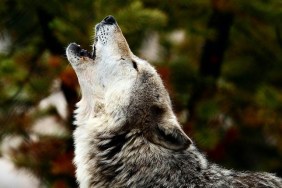New research from Japan has found certain genes linked to low stress played a large role in domesticating ancient dogs.
The study, published in Scientific Reports, comes as a team of researchers found genetic mutations in different dog breeds. Specifically, two mutations of a gene known as MC2R (melanocortin 2 receptor), the gene that produces the stress hormone cortisol.
History of Dog-Human Relationships
Currently, researchers believe modern dogs descended from gray wolves in east-central Asia around 30,000 years ago. Over time, these proto-dogs traveled across the Middle East and Africa, arriving in Europe about 10,000 years ago. Along the way, early humans selectively bred these dogs to be docile and friendly.
At first, Dr. Miho Nagasawa of Azabu University and his team began the study with over 600 dogs, split into two groups. The “ancient” breeds were those with DNA closely related to wolves, such as Akitas and Huskies. The other dogs were in the “general” breed group. The goal was to see if the ancient dog breeds had any changes in behavior compared to the general breed groups. Furthermore, blood samples taken from the dogs were analyzed to note any differences in the “low stress” genes between groups.
Differences in Social Cognition Among Dogs
After reviewing the results of the study, the team found that ancient breeds closely related to wolves showed lower levels of social bonding with human test subjects. Conversely, the general breeds made more eye contact with humans and generally desired to understand them more.
Dr. Nagasawa states, “these findings imply MC2R played a role in the domestication of dogs, perhaps by promoting lower levels of stress around humans.”
Ultimately, this led the team to believe that early humans chose to breed dogs based on these traits.
“The current hypothesis is that ancient wolf individuals that had low levels of fear and aggression started to approach human areas and evolved into dogs,” the study authors concluded.
Over time, these traits became genetically encoded and we now have over 400 breeds of domesticated dogs exhibiting these “low stress” genetic mutations.





